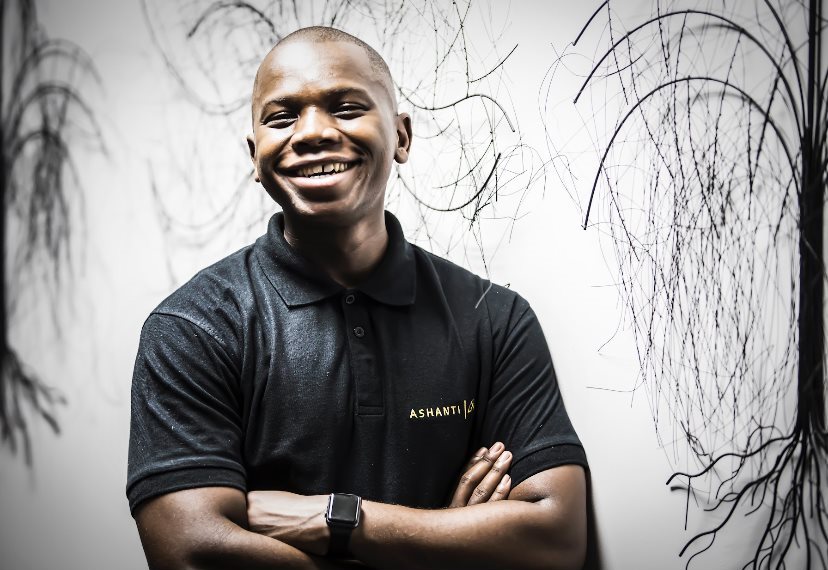Related
Top stories






More news

















Logistics & Transport
TNPA invites proposals for Break Bulk Terminal operator at Port of Cape Town







AI is one of the most promising technologies which is changing our world by showing its strength in various sectors like healthcare, retail, transportation, and entertainment. It has developed in the recruitment sector in recent years for searching candidates from large volumes of data, screening candidates’ profiles, interviewing and selecting the most suitable ones, etc. Hence, it can change or modify HR’s role, candidate perspective, or even change a company's whole environment and policy.
Recruiting the most suitable professional has always been a quagmire. McKinsey and Company is famous for contesting that companies are at war for talent. In today’s world, it couldn’t be truer; people spend and share most of their time and views on social media which becomes an integral part of their life. Social media has shifted hiring patterns in the human resource industry, recruiters started posting job advertisements online to attract candidates, especially after the 2008 financial crisis. We are all familiar with posting and viewing jobs on social media sites such as Glassdoor, LinkedIn, Facebook, and more. However, this creates a significantly huge number of applicants, and hiring the most appropriate talent on time has become laborious to HR.
Candidates further tend to apply for any job that slightly matches their profile. In this tough and competitive economy, it is expected. The role of AI technology is designed to then pick the most suitable candidates with the right skills and personalities to fit within the company’s culture.
The Society for Human Resource Management (SHRM) estimates that replacing a salaried employee costs 6 to 9 months’ salary on average. The organisation reports that these costs can be exponentially higher when it comes to millennial employees. Additionally, to screen and evaluate a large number of applications for a single job post, companies had to appoint a lot of recruiters which is very expensive, and also the effectiveness and efficiency of digital tools are very high in comparison with a human.
The use of AI within recruitment will remove all bias by focusing purely on facts rather than emotions and sympathies. The rise of Environmental, Social and Governance (ESG) metrics mean that companies can’t get away with a lack of diversity in the boardroom or in the foyer. Hiring talented and affordable diverse teams remains a challenging endeavour to pursue. To increase diversity without compromising the core objectives of institutions, companies must utilise artificial intelligence to recruit candidates.
Ikea, L’Oreal, Unilever, and Amazon which have used AI-powered recruitment systems like Robot Vera, chatbot called Mya, HireVue Assessments, has assisted in their particular and specialised ways to improve their talent-hiring capabilities. At Ashanti ai, our engineers are behind some of the recruitment systems that candidates use today. We are of the view that companies that won't adapt aren't going to survive. Humans are biased and are hard to fix. AI will be biased but will be much easier to fix.
Intellectual chatbots are capable of accessing the calendar of the recruiters to check if they are available, and then schedule the date and time for the relevant candidate. They can interpret resumes and request elucidations. Interacting with applicants one to one, instant messaging conversations on platforms like Facebook Messenger and text messages, chatbots can get some information about the applicant's experience, answer usual inquiries, and gather a wide range of data and request for a human selection representative to analyse. Black & Van Esch write that Unilever used HireVue and reported that it dramatically increased the speed and quality of the finalists who were subsequently interviewed in person and made offers.
AI has its own challenges; models can be biased because they are trained by fallible humans. However, iterations can improve the quality of the machine learning models. This is about the ethical discussion of what the algorithm does and how do you know that we play fair as an organisation. Openness is then very important. It will be increasingly significant to develop AI algorithms that are not just powerful and supportive tools, but also be transparent to inspection.
Delegating repetitive tasks to AI, recruiters can focus instead on more creative and strategic matters in their daily routines, as HR managers will shift their focus from operational tasks to a leadership role, motivating and cultivating their teams’ potential and skillsets. In South Africa, over the past years, there has been little investment towards developing human resource management; artificial intelligence presents new opportunities for employers to develop strategic players who can channel the flow of market information for faster and effective decisions.
Evidence suggests that the CV will be replaced in stages, with creative roles seeing this change in the short term with more structured qualification based roles such as accountant and financial positions changing in the medium term. Senior roles, such as CEO/board positions, will see the CV remain for the longest time, but upon the perceptual shift in acceptance of change, along with the unquestioned capabilities of these technologies, these new application methods will see the CV removed for all roles. The introduction of smart assessment tools such as gamification and video analysis technologies will be at the forefront of this modification, matrices will deliver more objective assessments of candidates and enable faster and fairer applications boosting the candidates and the employers by reducing fallout rates and reducing bias.
It is unchallenged that the face-to-face meetings hold significant value irrespective of any AI within the process. These meetings will be valuable twofold. Firstly it enables the recruiter and the company to establish if the candidate is indeed as good a fit as the algorithms have suggested. Second, it allows candidates and HR teams to discuss the cost to the company, contractual obligations, and more.
